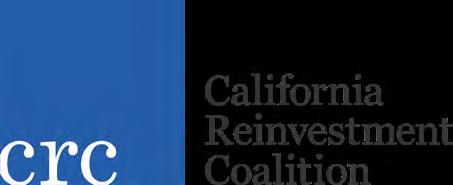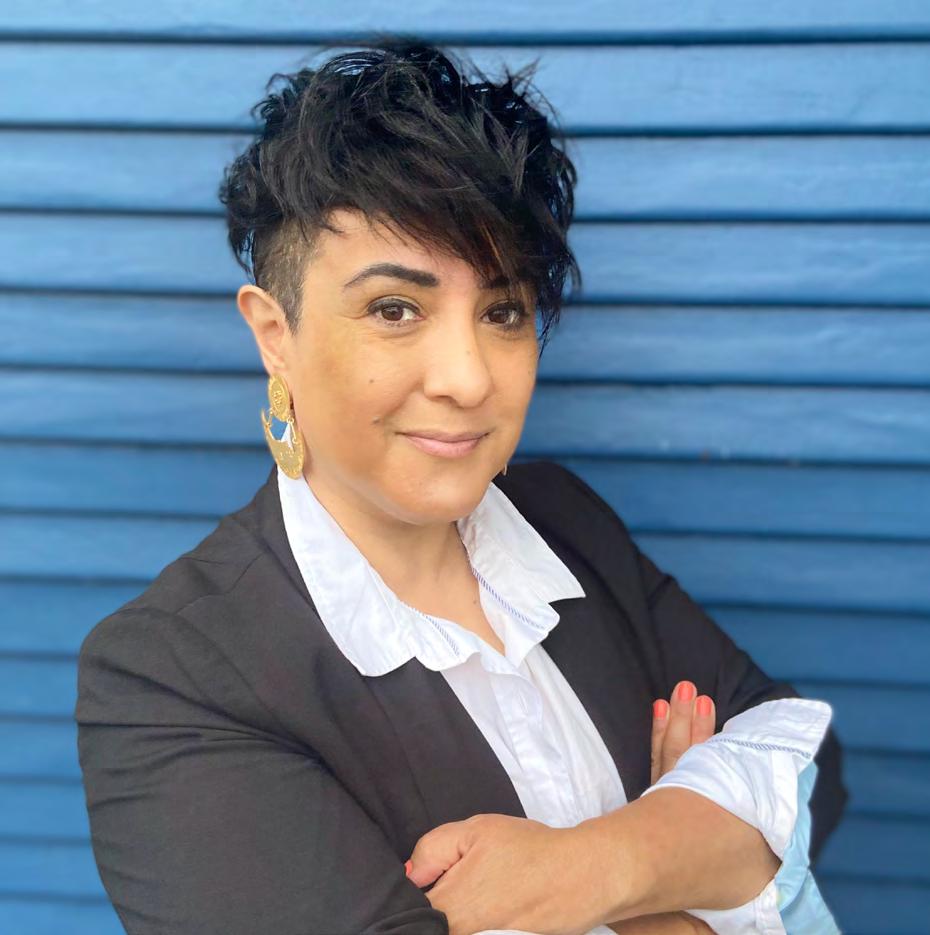Proposal Selection Criteria
The inaugural Resilience Fund cohort was selected based on the following criteria:
` BIPOC-led and BIPOC-serving nonprofits in California.
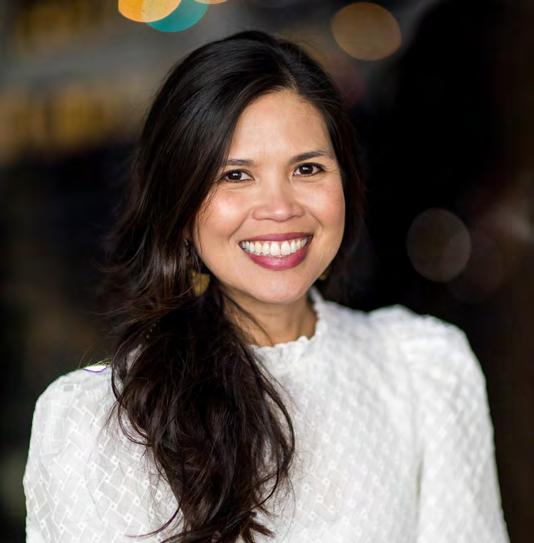
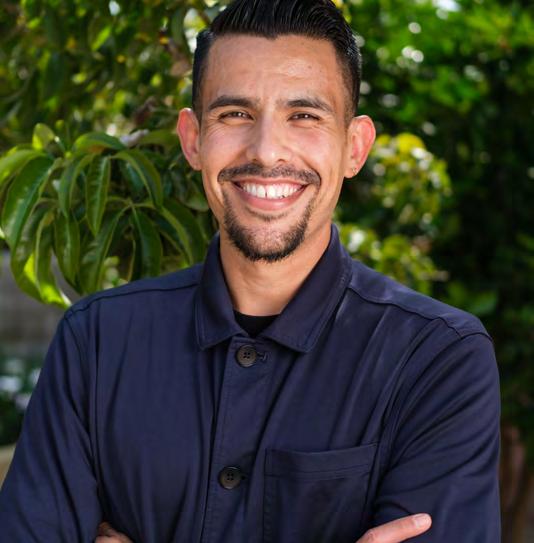

` Commitment to internal and external equity throughout the cohort members’ organizations.
` Diverse leadership amongst the applicant’s staff and boards.
` Commitment from the board and leadership to attend cohort learnings and process, not just grant support.
` Geographical diversity.
` A focus on organizations planning to become a CDFI or had received their designation within the last two years .
RFP Submission Analysis

` Over 60 applications were received.
` 28 applications received from qualifying nonprofits.


Ì Geographies: Inland Empire (1), San Diego (1), Northern CA(1), Central Valley (4), Bay Area (5), Los Angeles (16)
Ì Focus: Consumer loans (2), affordable housing (5), small business & micro-entrepreneurship (21)
` Have CDFI certification: Yes (4), No (24)
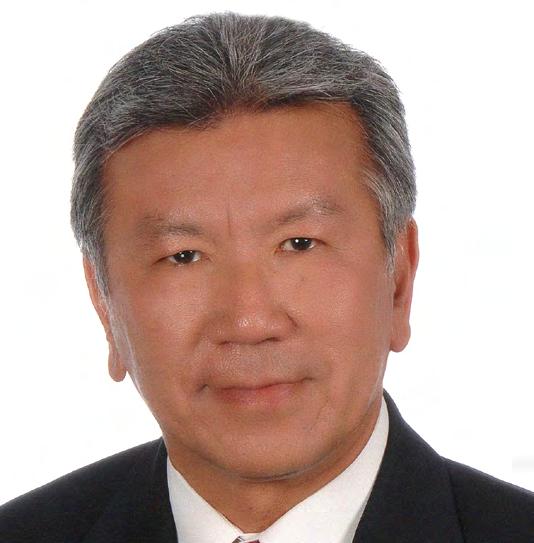
` Primary constituency: AAPI (2), Black/African American (3), Latino/a (6), Multi-ethnic BIPOC (17).
Meet the Resilience Fund Cohort
The Resilience Fund cohort members represent several stages in the CDFI lifecycle: conceptualizing, launching and incorporating primary lending areas such as micro-lending, small business, real estate and housing while utilizing a mix of internal and external underwriting.
CRC Resilience Fund Impact Report 2021-2022 8
At a glance
` Two cohort members, Inclusive Action and the Fresno Area Hispanic Foundation, are experienced CDFIs with portfolios of nearly $3 million.
` Two members, First Community Capital and Creser Capital are existing lenders with portfolios under $1 million .
` Five members, including Native First Lending, Coalition for Responsible Community Development, Community Services Unlimited, African Americans for Economic Empowerment and Chinatown Service Center, have approved credit policies and are applying to be state-licensed lenders.
` One member, Entrepinayship, is in organizational formation.
Highlights of our successes and unforeseen challenges in Year 1:
Success:
1 . With CRC support, Creser Capital submitted its CDFI Certification application.
2 . First Community Capital submitted an application for the SBA microloan program.
3. Black Cultural Zone CDC received its first draft of a micro-equity investment program.
4 . Approved credit policies for new lending.
5 . Created new legal entities for lending.
Unforeseen Challenges:
1 . Delays to our timeline:
` California State Lending License application re-designed its Lending License approval process in Spring 2022. The application now an automated National Mortgage Lending System that our cohort and contractors are finding more difficult to navigate. Examples includes:
Ì MU2 individual section which requires extended personal information for all stakeholders. Stakeholder typically includes members of the Board and key staff.
Ì Individual fingerprinting for background checks for all stakeholders.
Ì Individual credit reports for all lending stakeholders.
Ì Coordinating time to walk cohort members and their board members through the process is taking longer than anticipated.
Ì Multi-step submission process.
` CDFI Fund paused its acceptance of new CDFI Certification Applications from Oct. 1, 2022April 3, 2023. All applications submitted before October 1 are subject to re-certification under newly revamped guidelines and processes. Processing times are yet to be determined but have historically been slow due to backlog .
2 . Several members have had to create separate entities to house the CDFI. Many of their pre-existing organizational structures were not appropriate for a CDFI.
CRC Resilience Fund Impact Report 2021-2022 9
African Americans for Economic Empowerment (A2E2)
A2E2 was founded in 2012 to lend technical support to local organizations, mostly faith-based institutions, with an emphasis on affordable housing and community services. Our mission is to provide resources for African American assets, business owners, and individuals so that families can remain in the neighborhoods and spaces they have lived in for decades. AAEE links capital, partnerships and strategic services to the community to develop strong businesses and protect our faith-based property.
Geographic Areas/Communities served: A2E2 currently supports faith-based projects in East Oakland, West Oakland and South Berkeley.
A2E2’s Year 1 accomplishments:
` Prepared to submit a California Finance Lenders License application.
` Increased their inventory of interested small business borrowers and identified additional sources of borrowers .
` Secured two additional private capital sources with potential equity and one additional private debt source.
` Engaged an intern who is a student at UC Davis to expose them to the organization’s practices including assisting with administrative tasks.
Existing Loan Pool: No
“Participation in the cohort, as created by the Resilience Fund has been phenomenal so far, by opening our eyes to possibilities that despite our deep and broad experience, we still did not know existed. The experiences of some of the other cohort members have proven to be beneficial to us in shaping our future strategy and in making connections and contacts in other communities that have similar needs. It’s been great!”
– George McDaniel, Cofounder
“This is one of the first times I’ve seen a programmatic attempt to provide this kind of support to organizations that are demonstrating and making an economic impact. I have not seen this prior to this. I am extremely happy to see this.”
– Alex Anderson, Cofounder
Black Cultural Zone Community Development Corporation
Black Cultural Zone CDC is a California-based nonprofit corporation founded in 2019 that seeks to innovate, incubate, inform and elevate community-driven projects that allow our people and culture to thrive. The CDC works on behalf of and with the Black community with a focus on current and legacy East Oakland residents, businesses, entrepreneurs, organizations and artists. Their Work is of benefit to the larger Oakland community, particularly those most at risk of displacement.
Geographic Areas/Communities served: Alameda County, CA. Black Cultural Zone focuses on East Oakland because it is one of the last Bay Area frontiers in the struggle for retaining Black communities.
Black Cultural Zone CDC’s Year 1 accomplishments:
` The decision to become a micro-equity fund, as opposed to a loan fund.
CRC Resilience Fund Impact Report 2021-2022 10
` CCEDA completed first draft of a micro-equity program that seeks to make very small recoverable grants to retail, service and contracting businesses in the East Oakland community. Used grant to support our staffing of the existing recoverable grant program, to fund CEO participation in meetings, workshops, and other activities
Existing Loan Pool: No
“ The Resilience Fund came at the right time. We were running up against the ideas without the funding and knew that to really solve that problem we had to do it ourselves, but to have the Resilience Fund support us with this cohort of actual experts who can help us develop the CDFI and those financial resources, is absolutely essential! So, we’re getting the support, we’re in a community where folks are having the same questions, concerns and challenges and we can share resources. So, it literally is absolutely essential for what we’re trying to do to build space and hold space for Black people in Oakland.”
– Carolyn Johnson (CJ), CEO
Creser Capital Fund
Founded in 2020 in Sonoma County, CA, Creser Capital Fund bridges underbanked Latino small businesses with the capital they need to thrive. With a growing Sonoma County Latinx population (up 17.4% from 2010 to 2020, comprising 29% of residents per the US Census), and an increased need for a diversified local economy beyond tourism and agriculture, CCF is positioned to support Latino entrepreneurs’ need to access to larger amounts of capital, financial education and coaching to expand and grow their businesses while building credit.
Geographic Areas/Communities served: Underserved Latinos and BIPOC communities in Sonoma County, CA.
Creser Capital Fund’s Year 1 accomplishments:
` CDFI application was submitted on Sept. 9, 2022 and is awaiting a decision.
` The organization served as a panelist at the 2022 El Poder Latino event, the result of a new partnership between CRC and the Latino Community Foundation.
` The organization is currently preparing to undergo its first financial audit, in consultation with CCEDA, to meet CDFI fund and funder requirements.
Existing Loan Pool: Yes
“Being a part of the Resilience Fund has been very impactful for us. Not only the advice, the mentorship, the relationships that we’ve been able to create in a very short amount of time, as well as the educational piece, have allowed me to look outside of my immediate circle, and get the best practices from other organizations and to be able to implement that at Creser Capital.”
– Juan Hernandez, Co-Founder and CEO
Coalition for Responsible Community Development (CRCD)
The Coalition for Responsible Community Development is a nonprofit, tax-exempt Community Development Corporation formed in 2005 to serve the needs of South Los Angeles residents for jobs, economic development, and housing. CRCD has a long history of support for the Historic Central Avenue corridor and other major business districts in South and Southeast Los Angeles.
CRC Resilience Fund Impact Report 2021-2022 11
Geographic Areas/Communities served: Black and Latinx small business owners and entrepreneurs in South and Southeast Los Angeles .
CRCD’s Year 1 accomplishments:
` Preparation for submitting California Finance Lenders License application ( November 2022).
` Created a new entity - CRCD Community Loan Fund, LLC.
` Created credit policies .
` Selected as the South-East LA BusinessSourceCenter.
` Identified and established relationships with prospective lenders leading toward raising capital.
` Drafted and presented an initial CRCD Business Loan Program in partnership with Pacific Coast Regional Finance. Existing Loan Pool: No
“Participating as a Resilience Fund cohort member really helps us to achieve that goal to become a CDFI, by providing the technical assistance that’s needed to do the work, because it’s not an easy task to start a CDFI, so technical assistance is number one, and financial support to allow us to bring on the necessary talent to actually execute the work that’s required from what we learned in the cohort and just being around other peer groups to actually learn from each other and really siphon the expertise from folks in the room is what being part of the cohort is doing for us and it’s going to benefit our neighborhood(s) when we become a CDFI.”
– Mark Wilson, CEO
Chinatown Service Center (CSC)
Established in 1971, Chinatown Service Center (CSC) is one of the largest community-based Chinese-American health and human service organizations in Southern California. CSC’s mission is to provide outstanding services and advocacy that promote a better quality of life and equal opportunity for immigrants and other communities.
Geographic Areas/Communities served: Chinatown, Monterey Park, and Alhambra for Asian American small businesses with limited-English abilities and limited technology literacy. Many of CSC’s clients are first or second-generation immigrants who are coming into the United States and facing systemic barriers to getting access to traditional jobs.
CSC’s Year 1 accomplishments:
` Preparation for submitting California Finance Lenders License application and non-profit exempt status. (December 2022)
` Launched a brand new entity “CSC Lending ‘’ with the sole focus of becoming a CDFI and servicing community. Established bylaws, the first month of financial statements, bank accounts, and the board of directors. CSC also learned about the CDFI certification and lending operations from a blank slate.
` Drafted a credit policy and loan manual outlined, and have a high-level overview of that loan underwriting and approval process. As an organization and as a board, CSC began to think like a CDFI and monitor the relevant industry news such as the target market for the AAPI community.
` CSC’s Small Business Program was able to take loan packaging and grant packaging to a whole new level by learning about the underwriting process and working through the credit policy from the lender’s perspective.
CRC Resilience Fund Impact Report 2021-2022 12
Existing Loan Pool: No
“With the support of CRC Resilience Fund, we are in the process of launching a CDFI in the Chinatown community. This will empower many of the local entrepreneurs to get critical early phase capital to launch their businesses and allow the local mom and pop shops to utilize previously inaccessible funding to bring their business to the next level.”
– Peter Ng, CEO
Community Services Unlimited (CSU)
Community Services Unlimited has been operating programs to improve the health and wellbeing of residents of South Central Los Angeles (SCLA) since 1977. For almost two decades, CSU has leveraged food as an access point to engage, educate, empower, and rebuild our community through economic development, urban farming, nutrition and agricultural education, youth training and leadership development programs.
Geographic Areas/Communities served: CSU serves African American/Black and Mexican/Central American LMI residents of South Central Los Angeles and neighboring communities. CSU’s CDFI loan fund will specifically serve aspiring and current small business owners in the region.
CSU’s Year 1 accomplishments:
` Progress towards creating a new entity - the South Central Equitable Development Fund CDFI.
` Progress towards the creation of credit policies, setting up our lending license, determining our legal structure, etc .
` Progress towards completing the California Finance Lenders License application.
` Determined the desired legal structure for the organization’s fund. CSU has also been able to dedicate time to partnership building and fundraising to support the development of South Central Equitable Development Fund CDFI.
` Built relationships with multiple funders, public and private, with the aim of attracting funding for CSU’s work.
` Identified a consultant to develop marketing and outreach materials and to identify additional funders.
` Provided support through CSU’s Equitable Small Business Incubator (ESBI), which provides training and mentorship to Black and Brown small businesses.
Existing Loan Pool: No
“Participating in the fund has increased our capacity by providing training to staff on the many issues related to creating and managing a successful and impactful CDFI. Participating in the RF has connected us with TA providers and professionals who are helping us navigate critical questions as we move ahead.”
– Heather Fenney Alexander, Executive Director
Entrepinayship
A fiscally sponsored program in the process of obtaining non-profit status, Entrepinayship is a Long Beachbased organization with a mission to remove barriers to entrepreneurship as a tool for self-determination.
CRC Resilience Fund Impact Report 2021-2022 13
Using entrepreneurship as a pathway to generational wealth, autonomy, and financial independence, Entrepinayship also seeks to support target populations experiencing challenging economic conditions but are often overlooked, including AAPI women in low-to-moderate income areas, immigrant women of Southeast Asian descent, and women refugees and survivors of trafficking.
Geographic Areas/Communities served: Self-identifying Filipinas across the United States, with a geographic focus on Long Beach, Calif. (currently no CDFI’s for AAPIs) and the state of California. The organization plans to expand to regions with larger Filipino and AAPI populations such as Hawaii, New York and Nevada.
Entrepinayship’s Year 1 accomplishments:
Accelerated non-profit formation from a fiscally sponsored project.
` Hired a consultant to conduct broader organizational strategic plan.
` Developed a microlender-focused work plan.
` Offer a second cohort of Kauffman FastTrac program and provide a microgrant to those who compete using their pitch presentation. Demographics-wise we have 18 participants - all are women or non-binary, 6 are immigrants, 11 are in California (other states are Washington, Texas, New York, Hawaii, Nevada, and Washington).
Existing Loan Pool: No
“The Resilience Fund is a God-send! It helped us accelerate our growth, not only in terms of our goal to get to the path of a CDFI but also to build our capacity and hopefully avoid a lot of mistakes that many other organizations on that same path will often make. The Resilience fund and this cohort bring us access to technical assistance, to industry consultants who know this stuff backward and forward, and of course to a community of advocates who really want to see us win.”
– Anna Marie Cruz, Founder & CEO
First Community Capital (FCC)
Established in 2019 and headquartered in Riverside, Calif., First Community Capital, Inc. primarily focuses on improving the quality of life of underserved populations, including those living in rural areas and economically distressed communities. FCC’s mission is to foster economic justice and opportunity by providing access to capital and technical assistance to economically disadvantaged micro and rural businesses.
Geographic Areas/Communities served: FCC’s target market consists of African American, Hispanic, and low-income entrepreneurs and small businesses in Los Angeles, Riverside and San Bernardino counties.
FCC’s Year 1 accomplishments:
` Loan Program Development
Ì Review of FCC’s existing US Department of Commerce Economic Development Administration Revolving Loan Fund Administrative Plan and provided guidance to secure approval.
` Fund Development
Ì Assistance with developing a three-year plan focused on raising funds for capital, for lending, and loan loss reserves.
CRC Resilience Fund Impact Report 2021-2022 14
` SBA Microlender designation
Ì Assistance with submitting the SBA Microlender application to SBA.
` FCC staff members have been able to increase their understanding of every facet of the CDFI industry
` Staff Capacity - The Resilience Fund grant enabled us to increase our staff capacity by allowing us to maintain a full-time CEO, one full-time staff credit analyst, a part-time office administrator and a parttime business counselor.
` Outsource service - The funds have allowed us to engage a reputable CPA to help us with our bookkeeping and maintaining financial records, as well as tax return filing to the appropriate federal and state agencies. Undergoing first financial audit, in consultation with CCEDA, to meet CDFI Fund and funder requirements.
` Equipment & Software - Used Resilience Fund grant to acquire the following items and services:
Ì Additional office equipment such as laptop and printers for our growing team;
Ì Renew Loan Portfolio Management Software with Downhome Solutions;
Ì Cover the costs of IT and security;
Ì Cover the cost of membership – Credit Bureau Alliance, which provides access to all three major credit bureaus and the ability to pull credit inquiries and reports for clients.
` Loan Fund – Allocated 25% of the Resilience Fund grant to loan capital fund, which increased lending activities.
` Secured a source of capital – Pacific Western Bank for Loan Loss Reserves.
` Recommendation for a CPA to conduct a financial statement audit.
Existing Loan Pool: Yes
“Through the participation in the CRC Resilience Fund Cohort, we were able to scale our organization by adding two more staff to our team and we were also able to provide a lot of technical assistance to small businesses, in addition, we were able to scale our funding activities by making additional loans to small businesses. Prior to the CRC Resilience Fund Cohort Program, we had 8 loans in our pipelines. Today, we have about 40 loans in our pipeline and this is because of the Resilience Fund Cohort Program.”
– T. Jay Diallo, President/CEO
Fresno Area Hispanic Foundation (FAHF)
The Fresno Area Hispanic Foundation was established in 2004 to help launch and grow Hispanic-owned businesses in the region .
Geographic Areas/Communities served: FAHF serves the San Joaquin Valley with a focus on micro- and small businesses owned or co-founded by women, veterans and low- to moderate-income entrepreneurs from BIPOC communities, rural areas and other underserved community members and/or groups.
FAHF’s Year 1 accomplishments:
` Reviewed and updated FAHF’s written policies & procedures.
CRC Resilience Fund Impact Report 2021-2022 15
` Developed a new relationship with the Candide Group and its Olamina Fund.
` New sources of funding have been secured with the National Association for Latino Community Asset Builders (NALCAB) and USDA’s Intermediary Relending Program (IRP); both of which are debt.
Existing Loan Pool: Yes
“Galvan Bookkeeping is a sole proprietorship based in Sanger, CA specializing in tax preparation, bookkeeping, and payroll services. Mr. Galvan was experiencing significant demand for his services from farm labor contractors. FAHF provided him with a $35,000 loan for the purchase of a new payroll processing software and working capital to hire one part-time worker, allowing him to not only meet demand but also grow and provide his services to more individuals.”
– Yery Olivares, COO, CDFI Executive Director
Inclusive Action for the City
Inclusive Action is a nonprofit CDFI whose mission is to bring people together to build strong local economies that uplift low-income urban communities through policy advocacy and transformative economic development initiatives. Founded in 2008, Inclusive Action for the City was created by a multidisciplinary group of young professionals frustrated with the slow pace of change in low-income, urban neighborhoods of LA. Serving low-income residents across Los Angeles, Inclusive Action builds programs to address income inequality through entrepreneurism and advances policies that aim to uplift communities currently facing the most obstacles to social and economic opportunity .
Geographic Areas/Communities served: Provides micro-finance and technical assistance services to low-income communities and small businesses across Los Angeles County in areas like Boyle Heights, South LA, and Park/Westlake, with a particular focus on low-income neighborhoods where there is a high concentration of small businesses like mom-and-pop restaurants, neighborhood markets, street vendors and more.
Inclusive Action’s year 1 accomplishments:
` Strengthening Inclusive Action’s micro- and small business lending program and CDFI infrastructure through CCEDA review of credit policies and loan documentation.
` Developed a 3-year growth plan to build and maintain a stable loan portfolio.
` Secured lending capital from three new sources. Wells Fargo provided a multi-year, multi-million dollar grant that provides lending and grant capital and operational support for the Semi’a Fund program over three years. The Weingart Foundation provided lending capital in the form of a program-related investment. Lastly, The Wurwand Foundation provided lending capital in the form of a grant.
` Participation in the Resilience Fund has helped Inclusive Action invest in growing the impact and scale of its flagship economic development initiative, the Semi’a Fund.
Ì The Resilience Fund’s grant support is helping Inclusive Action build on the momentum the Semi’a Fund gained in 2021. Last year the Semi’a Fund helped 94 low-income and BIPOC entrepreneurs access over $1M in ultra-low-interest loan capital and provided over 1,400 business coaching hours to its full portfolio of 113 small business owners. So far in 2022, Inclusive Action has helped 29 entrepreneurs access over $335,000 in capital, bringing its current, active portfolio to 137, its largest ever.
CRC Resilience Fund Impact Report 2021-2022 16
Existing Loan Pool: Yes
“Inclusive Action onboarded 5 new members to its lending team this year. Being a part of the RF cohort was beneficial not only in terms of complementing onboarding but also in immersing them into the CDFI space and helping them build a network of like-minded allies. The cohort was a great space to share questions, best practices and to co-learn.”
– Maribel Garcia, Director of Lending
Pukuu Cultural Services
Pukuu Cultural Community Services is an organization founded by the community of the present-day Fernandeńo Tataviam Band of Mission Indians (FTBMI).
Geographic Areas/Communities served: The present-day FTBMI ancestral territory is situated on and serves geographically areas ranging from present-day Simi Valley and Malibu, Cahuenga and Encino, Tujunga and the present-day Tejon Ranch. Impacted constituencies are comprised of Congressional Districts (23rd, 25th, 26th, 28th, 29th, 30th, 33rd), Council Districts (12th, 7th, 3rd, 4th, 6th, 2nd, 11th, 5th, 13th) and Assembly Districts (36th, 38th, 39th, 43rd, 44th, 45th, 46th, 50th).
Pukuu’s Year 1 accomplishments:
` Preparation for submitting California Finance Lenders License application and non-profit exempt status.
` Launched a brand new entity “Native First Lending.”
` Drafted credit policies.
` Fireside Chat with Tribal President, Rudy Ortega discussing the importance of Indigenous-Led CDFIs on FaceBook Live.
Existing Loan Pool: No
“Participation in the Resilience Fund has been instrumental in not only bringing the necessary resources but also the education… really working on the same model that we’re all trying to promote, just building up our communities, right where we are. So the resources, TA and education have all been extremely instrumental in helping us understand how to connect and bridge the business side with the community needs.” ”
RF Grants Impact by the Numbers
Here’s how the 11 cohort member organizations said the Resilience Fund grants helped reach their organizational goals:
` 82% of the cohort reported training staff, executive leadership and board
` 55% of the cohort reported designing, marketing and promoting loan products
` 55% of the cohort reported deploying new lending software, platforms and systems
` 45% of the cohort reported applying for and receiving California lender’s license, CDFI certification or other business licenses or certifications.
CRC Resilience Fund Impact Report 2021-2022 17
– Raymond Salas, Senator with the Fernandeno Tataviam Band of Mission Indians
` 36% of the cohort reported developing and improving credit/underwriting policies and procedures, including risk rating systems
` 27% of the cohort reported hiring new staff, interns or adding new board members
` 18% of the cohort reported providing technical assistance to local businesses
Four organizations began lending in Year 1. Here is the total lending impact of four organizations in Year 1:
` 499 loan applications processed
` 223 New loan originations
` Loan portfolios totaling more than $2.2 million
` 7 small businesses with 3-20 employees created/sustained
` 108 micro-businesses with three or fewer employees created/sustained
` 124 jobs created/retained through lending activities
` 253 of families positively impacted (housing, small business, loans, microloans)
` 55 high-interest loans refinanced by RF Cohort members
Measuring Progress Year 1 Timeline
Detailed Year 1 Timeline
August 2021
` The Resilience Fund’s (RF) Request for Proposal goes live.
` RF Advisory Committee is assembled.
November 2021
` Cohort selection criteria drafted by CRC Program Manager, CEO and CDFO and approved by RF Advisory Committee.
` RF Proposals were reviewed by RF advisory committee and CRC.
December 2021
` RF semi-finalists selected.
` RF Advisory committee meets to review semi-finalists’ profiles.
` Semi-finalist interviews conducted and supplemental documents collected, including biographical information, and 990s.
` Decision letters sent to finalists to officially join the inaugural RF cohort.
January 2022
` Terms and conditions of the MOUs finalized.
` An additional organization, Pukuu Cultural Community Services, a 501(c)(3) of the Fernandeño Tataviam Band of Mission Indians, was added to the cohort.
February 2022
` CRC officially announces the launch of the RF cohort.
` Orientation and initial grant disbursement commence.
` CAMEO’s CDFI Essentials, the first session with the RF cohort, takes place.
CRC Resilience Fund Impact Report 2021-2022 18
March 2022
` CCEDA customizes work plans for each cohort member.
` RF Program Manager begins cohort site visits and weekly check-ins.
` Monthly check-ins with TA providers begin.
` Progress updates delivered to bank and foundation funders.
June –
July 2022
` RF Program Manager launches summer lunch-and-learn series
Ì June 15: Human capital and talent development
Ì June 22: Financial and risk-sharing models
Ì June 29: Technology and operational efficiencies
Ì July 6: Thought leadership and research
Ì July 13: Fundraising and fund development
` RF cohort completes and submits interim progress report to CRC .
` Progress updates delivered to bank and foundation funders.
` CCEDA completed new Credit Policies and received board approval from five co hort members .
` CCEDA prepared SBA microloan and EDA RLF applications.
August –
December 2022
` RF Program Manager launches monthly Fireside Chats between cohort members and industry leaders. Guests included: Lenwood V. Long, Sr., President/CEO of African American Alliance of CDFI CEOs; Bulbul Gupta, President/CEO of Pacific Community Ventures; Marisa Calderon, Executive Director, NCRC Community Development Fund, Chief of Community Finance & Mobility, NCRC
` CCEDA prepares to submit first CDFI certification application for Creser Capital.
` CCEDA prepares a micro-equity investment policy for one cohort member.
` CCEDA completes organization development plans and first loan program review.
` Cohort members attend a special reception at CRC’s Equitable Futures Awards.
` End-of-year syncs measuring progress against cohort member work plans commence .
` Progress updates delivered to bank and foundation funders.
` End-of-year program evaluations held.
` Cohort members submit their second interim progress report on Dec. 31.
CRC Resilience Fund Impact Report 2021-2022 19
Looking Ahead - A New Generation of CDFIs
As you have seen in this report, CRC has been successful in supporting and empowering the Resilience Fund cohort as they progress along their journey of achieving CDFI certification in Year 1 thanks to our team’s unwavering commitment to equipping BIPOC and low-income communities with the capital needed to achieve lasting and sustaining economic development and to build multi-generational wealth. The first year of the Resilience Fund has required that our team be innovative, open to experimentation and able to adapt to changing circumstances .
Looking ahead, CRC plans to:
` Develop a loan fund to continue to support the cohort after graduation—thus establishing an alumni network
` Redefine success metrics to focus on total impact in respective communities instead of number of newly established CDFIs
Ì These new metrics might include: Evaluation of skills and knowledge gained from the start of the program and the end; Participation rates; number of strategic partners obtained;any development of cooperatives, or joint partnership agreements; etc.

CRC Resilience Fund Impact Report 2021-2022 20
Acknowledgements
CRC would like to thank our generous partners and funders for their ongoing support in establishing this program. Without the support and dedication of the following organizations and individuals, our work would not be possible .
Grantmaking Partners
The San Francisco Foundation
Funding Partners
Bank of America, Capital One, Cathay Bank, Chase, City National Bank, East West Bank, First Citizens Bank, First Republic Bank, Flagstar Bank, Mechanics Bank, Pacific Premier Bank, Signature Bank, Silicon Valley Bank, Tri Counties Bank, The Walter & Elise Haas Fund, Wells Fargo, U.S. Bank
Advisors and Guest Speakers
Lenwood V. Long, Bulbul Gupta, Marisa Calderon
Connect with CRC
Follow the California Reinvestment Coalition on social media to see exclusive Resilience Fund content.
Instagram @calreinvest
Twitter @CalReinvest
Facebook @calreinvest
LinkedIn @california-reinvestment-coalition
Contact
For more information about the Resilience Fund, contact Yehwroe S. Martyn, Program Manager, at ymartyn@calreinvest.org for more information.
Contribute to the fund
Contact John Hoffman, Chief of Development, at jhoffman@calreinvest.org to contribute to the Resilience Fund .
CRC Resilience Fund Impact Report 2021-2022 21
